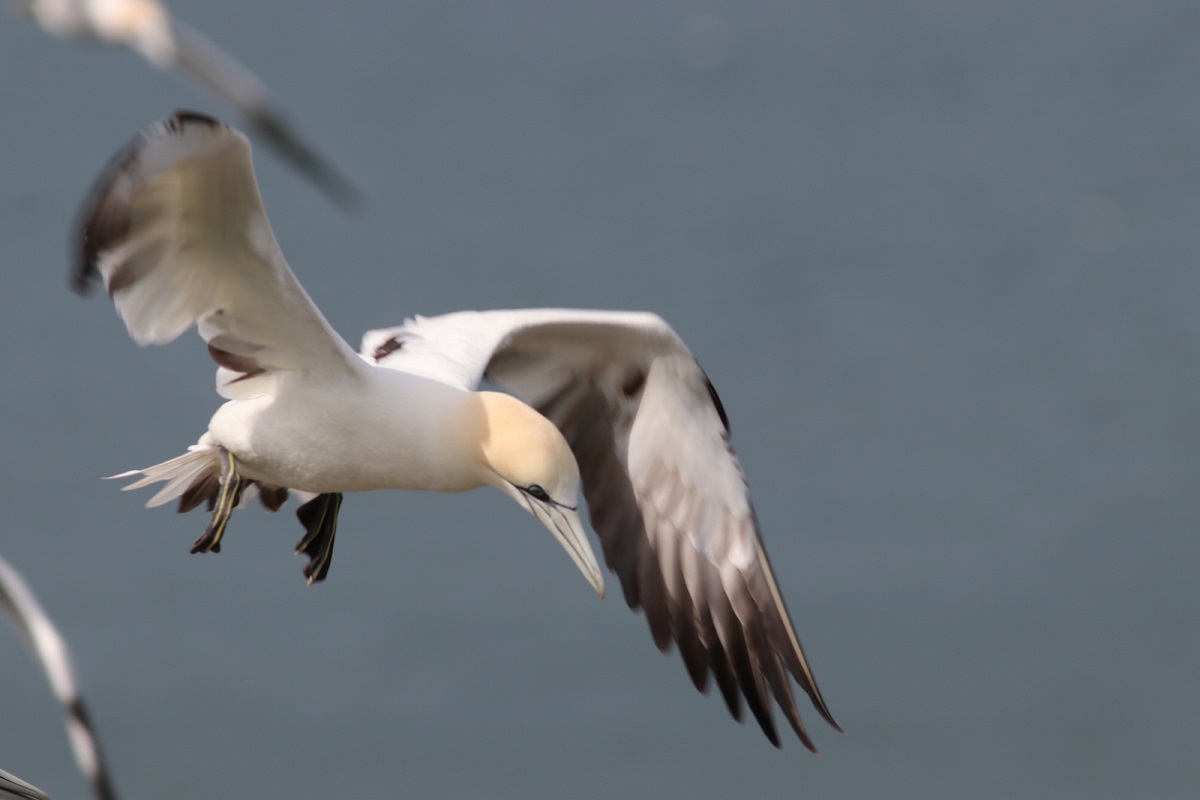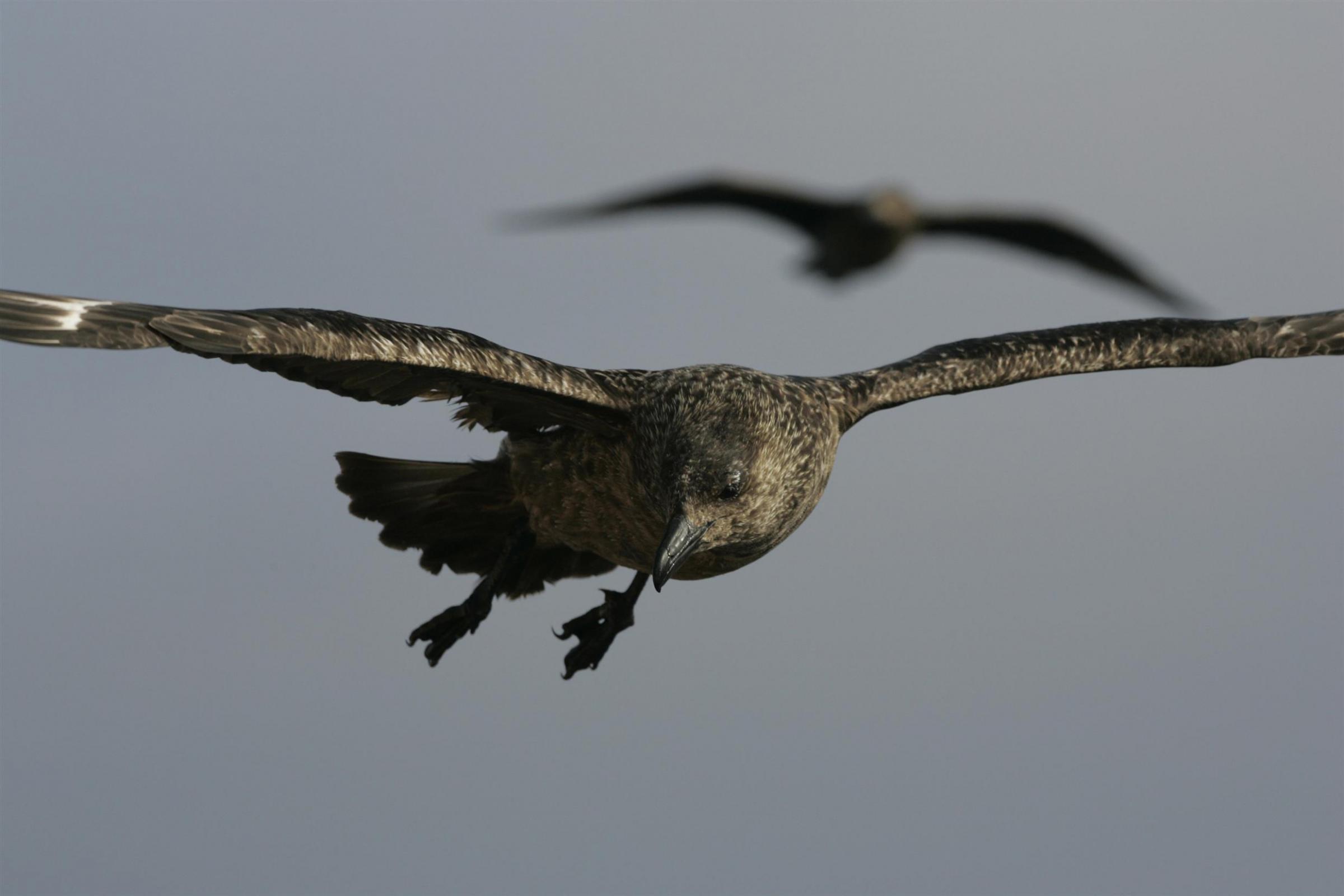
HUNDREDS of dead seabirds are being found on Scotland’s coastline as illness sweeps through bird colonies.
Urgent calls have been made for the Scottish Government to develop a response plan as Highly Pathogenic Avian Influenza (HPAI) affects various species.
It is estimated that more than 1000 gannets and many hundreds of great skuas have been found dead so far, according to reports.
Scotland has 60% of the world’s population of breeding great skuas and 46% of breeding gannets.
RSPB Scotland has urged the Scottish Government and NatureScot to respond to the situation and ensure measures are put in place to reduce any further threats to seabirds.
Other species affected include sandwich and Arctic terns, with reports of high mortality at a colony on the Mull of Galloway where a number of dead guillemots have also been found.
Shetland appears to be the most heavily affected, where there have been reports of widespread deaths at Noss and great skua (bonxie) colonies, but also at Fair Isle, Orkney, the Western Isles, Handa, the Flannan Isles, St Kilda, Troup Head in north-east Scotland, and Bass Rock in the Firth of Forth.
Restrictions were put in place in Shetland last week following a confirmed outbreak of bird flu in a commercial flock.
It followed dozens of wild birds dying in a suspected avian flu outbreak at Loch Fleet, near Golspie in Sutherland, last month.

Stewart Bain of the RSPB said the reports have been heartbreaking to receive.
He urged anyone who sees sick or dead birds to avoid contact with them and to report them to Defra helpline, adding: “This will help give a clearer picture of the situation and inform how it is dealt with.”
Bain said members of the public should take extra care to not disturb nesting birds to help protect numbers that appear to be decreasing fast.
Rebecca Nason, who runs Shetland Seabird Tours with her business partner Phil Harris, said the number of birds lost appears to be significant.
She said: “The great skua or "bonxie" as they are known in Shetland, is our most important bird in a global context.
“The numbers of great skua around the Shetland Islands is normally around 1200 birds, so the population isn't vast to begin with.
“We must have lost several hundred birds already, with monitoring of currently held territories and mortality figures still taking place.
“To lose the otherwise small but relatively stable population would be a big blow to the natural history of the Isles.”
Last winter HPAI devastated numbers of barnacle geese in the Solway, between Cumbria and Dumfries and Galloway, with estimates of a loss of more than a third of the world’s Svalbard population, according to RSPB.
Dr Paul Walton, head of species and habitats for RSPB Scotland, said: “Scotland’s seabirds are already facing multiple severe pressures generated by people – climate change, prey fish shortages, invasive species brought to islands, mortality in fishing gear, and poorly sited wind turbines.
“These populations have halved since the 1980s. Now, a highly mutable and deadly new form of avian influenza, which originated in poultry, is killing our wild seabirds in large numbers.
“We urge the Scottish Government and NatureScot to develop a response plan urgently – to co-ordinate surveillance and testing, disturbance minimisation, carcass disposal and biosecurity.
“Seabirds are long-lived, take longer to reach breeding age and tend to produce fewer offspring than geese, meaning impacts of high adult mortality on future numbers could be much more significant and any recovery take far longer.
“Yet, seabirds already face many other significant threats and many species have suffered severe declines in numbers over recent decades.”
Nason added that more needed to be done to safeguard Scotland’s seabird populations.
She said: “If everyone saw what our seabirds are going through, maybe there would be more pressure put on governing bodies to increase the protection afforded to our wildlife and to try and tackle the major man-made threats affecting our seabirds.
“Collectively we can do something about it. After all, they need all the help they can get.”







